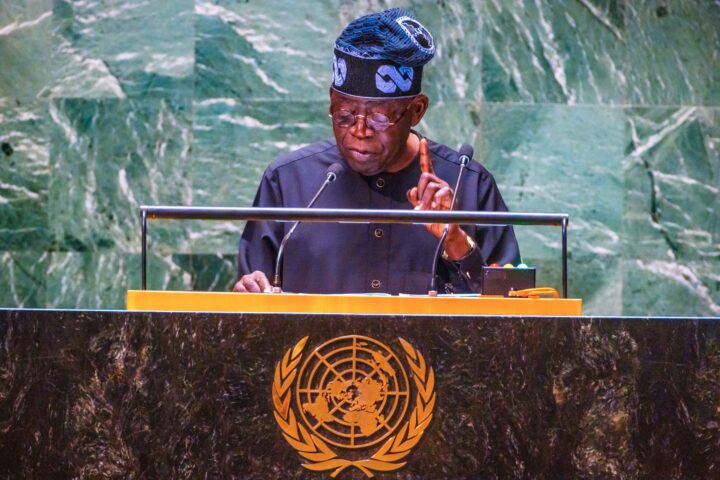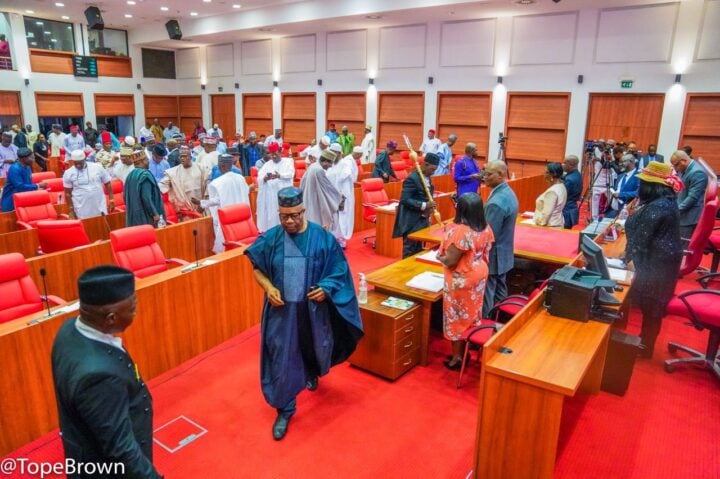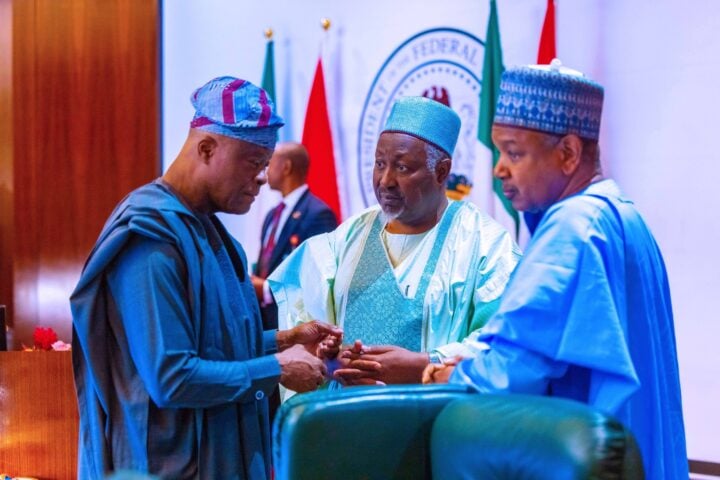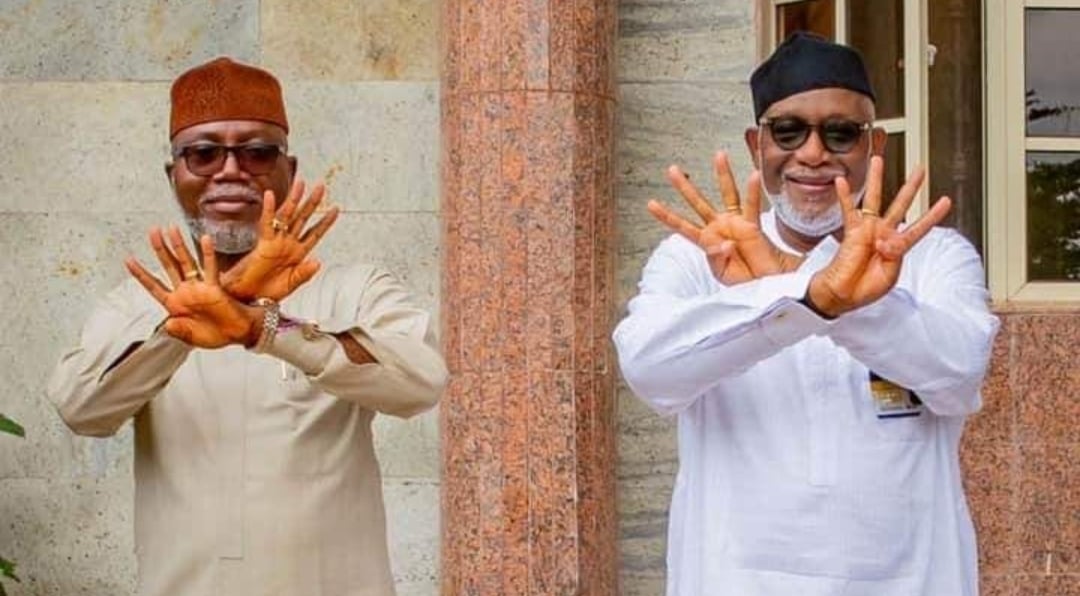While the President of Nigeria, Bola Ahmed Tinubu, was speaking at the United Nations General Assembly (UNGA 78), last week, releasing sound bites and rallying the international community to the plight and potentials of the African continent and the need for them to pay more attention to the well-being of the continent, especially Nigeria, for the good of the entire human race, the national power grid again went down, the second time in less than a week. This time it was reported that the amount of power available to the entire nation was scandalously 42.7 MW as against the 273 MW of the previous week.
Before the trip to the United Nations, the President was in India to attend the G20 New Delhi Summit which was equally a landmark meeting for him and there have been lots of claims concerning achievements or non achievements thereoff. But almost everybody with a sense of the past can testify there is a new wave of international diplomacy for Nigeria and the results arising therefrom remain in the realm of conjecture.
As I made the rounds the following morning trying to log off the miles, I saw the grim reality of what was happening around the nation with the entire population struggling to get a little of the miserly 42.7MW. Not many could any way, so the generators at the GSM base stations were humming away in what seems a sorrowful dirge for the nation.
There is a particular one within a church premises which seems to enjoy the grace of its host. But this very morning, it joined the dirge.
Advertisement
I stood listening to the sound as the sweat ran down my back from the long walk. My mind flashed back to Chinua Achebe’s Things Fall Apart in reverse order. In one of those moments, Unoka, Okonkwo’s father, was looking for a solution to his misery and poverty stricken life and had to resort to the help of the Oracles of the Hills and the Caves (Agbala). Without listening to his windy story, the oracle rebuked him for overt laziness and pointed out that while other men of brave hearts were covering long distances of seven rivers looking for virgin lands to farm, Unoka was hovering around his home, sacrificing and demanding miracles from overused land. The oracle gave one firm instruction: ‘’Go home and work like a man.’’
In the case of present Nigeria, the President is travelling far and wide looking for solutions to the problems that ail the country. Making promises, making claims of achievements already in the bag. If the location was to return to Achebe’s Umuofia, perhaps the oracle would have told the President the same thing: Go home and work like a man.
Perhaps you will permit me to add some sheen to the interpretation: go and find local solutions to the problems confronting your country. Yes. We do not need the world to cure the problems of perennial power failure in Nigeria or stem the overwhelming descent into total security nightmare. The cliche would advise that we take the bull by the horn and deal with all the attendant consequences.
Advertisement
I am standing not too far from this communication tower and listening to the suppressed sound emanating from the generator which is not so good for the ears, but which is even worse for the pockets. The situation in the country has made life difficult for the people, and has made planning impossible. How does a family of four, for instance, plan with Thirty Thousand Naira (N30,000) minimum wage?
Still very early in the morning, my mind tried to create a mental picture of what could be happening across the nation where power transmission has failed miserably and I tried not to do the mathematics. There are about 35,000 communication towers carrying over 127,294 base transceiver stations (BTS) across the country. At the tipping point of the industry, the transmission infrastructure was rolled out by the service providers. However, some years ago, some operators thought it wise to focus on only service provision and ceded infrastructure management to some specialised companies. It was a welcome licensing opportunity for the regulator of the industry, the Nigerian Communications Commission (NCC), which quickly licensed a number of companies which include: IHS, American Tower Company and Communication Towers, among others.
A new business has been created requiring the Tower companies (TowerCos) to buy over the tower facilities from the mobile service providers, including MTN, Airtel and 9Mobile, apart from Globacom which still keeps that genre of business. The companies would provide towers, power and security while the Telcos would only come in with their equipment to install on the towers. It is a very specialised type of business with a lot of risks. In this arrangement , Towercos are the passive service providers while the operators have become the active service providers as they interface with the subscribers. It is worth observing here that IHS operates in several other African markets while American Towers came into the nation’s telecoms ecosystem with vast experience from operations in the United States.
There is a new thinking in the industry. Collocation, an industry source told this writer, is the name of the game, as operators scrambled for survival by installing their radio equipment on the same towers, forgetting the nastiness of competition.
Advertisement
The TowerCos power the generators and ensure adequate security at tower sites. In the case of national power grid failure like we witnessed recently, it is their headache to buy diesel for their generators. Like everything climbing up, the cost of a litre of diesel has hit One thousand Naira (N1000). I was told that it would cost about Five Million Naira to run a generator for one month. Each site houses two generators. I didn’t want to do the maths of multiplying that cost with 34, 862 tower sites. It is alarming, if not very frustrating.
So many things are running through the head of this writer this very morning, a cogitation into the state of things in an industry we have always bragged about. There is a failing associated with fussiness in regulation and the plethora of taxes piled on the operators. Quality of service (QOS) has slumped miserably across all networks, like the operators were just learning to roll out again. Some advise the NCC has to reinvent itself instead of glorying in legacy achievements and the very mundane that means little to the subscriber expecting good services.
But what is coming to the fore is the primacy of some industry top players whose contributions have remained in the shadows, glitz, glamour and a much hyped success of the telecommunications industry but whose failure, is capable of ruining not only the industry but actually also taking the nation’s economy down substantially. Oh, attributing too much importance to them?
Speaking to this writer Monday night, President of the Association of Licensed Telecoms Operators of Nigeria (ALTON), Engr Gbenga Adebayo, lamented the plight of the TowerCos, describing it as a time bomb waiting to explode.
Advertisement
“The TowerCos are not in the equation when you discuss the industry yet they remain the engine room of the sector. They are the ones who carry the weight of the industry, they face intimidation from states, local council and area boys and face closure from different government agencies. They are owed huge debts by the industry. In the face of all these problems, they must still meet service level agreements (SLA) with the Telcos. They are facing a big, big challenge and the government must do something urgently to address their problems. After all, they are no charity workers,” Adebayo warned.
An NCC source confirmed the words of Adebayo, saying, “the TowerCos are very important in the service value chain of the telecommunications industry.”
Advertisement
Like the chameleon with a fabled big head to carry the worries of the world, the Towercos have developed a big head to carry the problems of an important industry which they may not be able to carry much further. But what troubles them and the entire telecommunications industry, like most Nigerians, are local issues which demand home made elixir. President Tinubu should look inwards, much closely, before attracting the deserved attention of the global community.
Advertisement
Views expressed by contributors are strictly personal and not of TheCable.
Add a comment






